‘Terrible war crime’: Germany wants more sanctions after civilians killed
Germany has called for fresh EU sanctions against Russia, condemning the killings of civilians in the Ukrainian city of Bucha as a “terrible war crime”.
Germany called for fresh EU sanctions against Russia on Sunday, as it condemned the killings of civilians in the Ukrainian city of Bucha as a “terrible war crime”.
“This terrible war crime cannot go unanswered,” Vice-Chancellor and Economy Minister Robert Habeck told German newspaper Bild the day after the bodies of nearly 300 civilians were found in mass graves after Russian troops withdrew.
“I think that a strengthening of sanctions is called for. That’s what we are preparing with our EU partners,” he said.
Foreign Minister Annalena Baerbock said the images from Bucha were “unbearable”.
“Putin’s frantic violence is wiping out innocent families and knows no bounds,” she tweeted, adding that those responsible for war crimes must be held to account.
“We will strengthen the sanctions against Russia and further support the defence of Ukraine,” the minister said.
Ukraine Foreign Minister Dmytro Kuleba called Bucha a “deliberate massacre” and urged G7 countries to impose “devastating” sanctions immediately.
Ukraine said it had regained control of the Kyiv region, with Russian troops retreating from around the capital and Chernigiv city, as evidence emerged of civilian killings in areas the invading forces have been occupying.
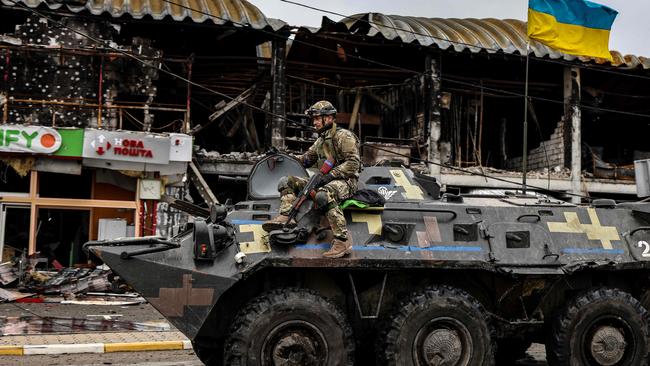
British Foreign Secretary Liz Truss said she was “appalled by atrocities in Bucha and other towns in Ukraine”.
“Reports of Russian forces targeting innocent civilians are abhorrent. The UK is working with others to collect evidence and support @IntlCrimCourt war crimes investigation. Those responsible will be held to account,” Ms Truss tweeted.
The International Criminal Court has already opened a probe into possible war crimes committed in Ukraine, and several Western leaders, including US President Joe Biden, have accused Russia’s Vladimir Putin of being a “war criminal”.
President Volodymyr Zelensky has also accused Russian soldiers of planting mines and other booby traps as they withdraw from northern Ukraine.
“They are leaving behind a complete disaster and many dangers … Firstly, the airstrikes may continue. Secondly, they are mining the whole territory.
“Mining houses, equipment, even the bodies of people who were killed,” he said in a video address on Saturday, warning returning residents of tripwires and other dangers.
“We are moving forward. Moving carefully and everyone who returns to this area must also be very careful.”
While Russian forces appeared to be withdrawing from the north, a series of explosions was heard on Sunday morning in the historic Black Sea port of Odesa, with columns of black smoke and flames visible, apparently in an industrial part of the strategic city.
Anton Herashchenko, adviser to the Interior Minister, said Odesa had been attacked from the air. “Fires were reported in some areas. Part of the missiles were shot down by air defence,” he wrote on Telegram.
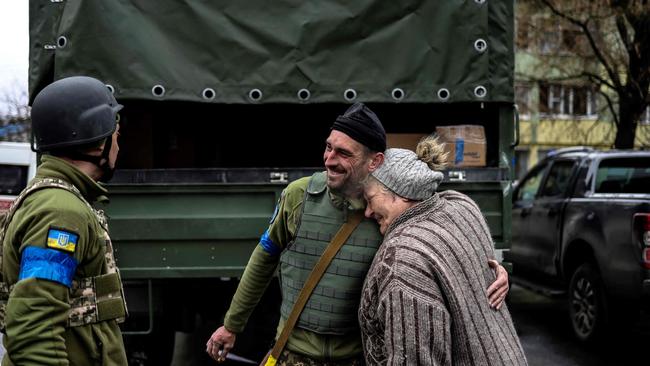
In an attempt to raise economic pressure on Russia, the Baltic states of Latvia, Estonia and Lithuania announced on Saturday they had stopped all imports of Russian natural gas.
In a potential sign of progress to end the fighting, Ukrainian negotiator David Arakhamia told local television channels that Russia had “verbally” accepted most of Kyiv’s proposals in peace talks – except on the issue of Crimea, which Moscow annexed in 2014.
Among the agreed-upon points was that a referendum on Ukraine’s neutral status “will be the only way out of this situation”, Mr Arakhamia said.
He said any meeting between Mr Zelensky and Mr Putin would “with a high probability” take place in Turkey, which has sought to mediate the conflict.
As Russian forces withdraw from some northern areas, Moscow appears to be focusing on eastern and southern Ukraine, where it already holds vast swathes of territory.
“What is the aim of the Russian forces? They want to seize both Donbas and the south of Ukraine,” Mr Zelensky said.
“What is our goal? To defend our freedom, our land and our people.”
Ukrainian presidential adviser Mykhaylo Podolyak warned on social media that “without heavy weapons, we won’t be able to drive (Russia) out”.
Ukraine authorities offered citizens elements of good news in claiming progress against the Russians more than five weeks after Moscow’s invasion triggered Europe’s worst conflict in decades.
“Irpin, Bucha, Gostomel and the whole Kyiv region were liberated from the invader,” deputy defence minister Ganna Maliar said on Facebook, referring to towns that have been heavily damaged or destroyed by fighting.
Mr Putin ordered tanks into Russia’s pro-Western neighbour on February 24, and Ukraine estimates 20,000 people have been killed in the war so far.
More than 10 million have had to flee their homes.
Ukrainian authorities said the body of a well-known photographer Maks Levin had been found near a village in the region around Kyiv that had been caught up in the fighting.
Levin became the sixth journalist killed in the war, according to Reporters Without Borders. Prosecutors said Levin, who was unarmed, “was killed by servicemen of the Russian Armed Forces with two shots from small-fire arms”.
The 40-year-old father of four had been reported missing on March 13; his body was found on April 1.
AFP

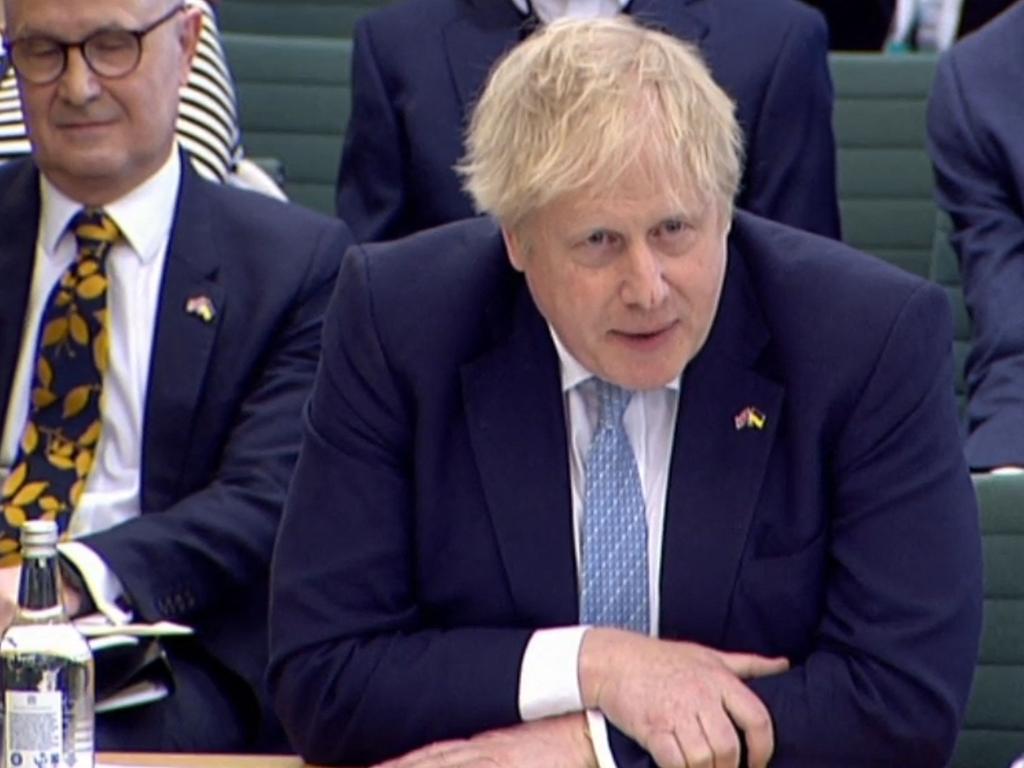
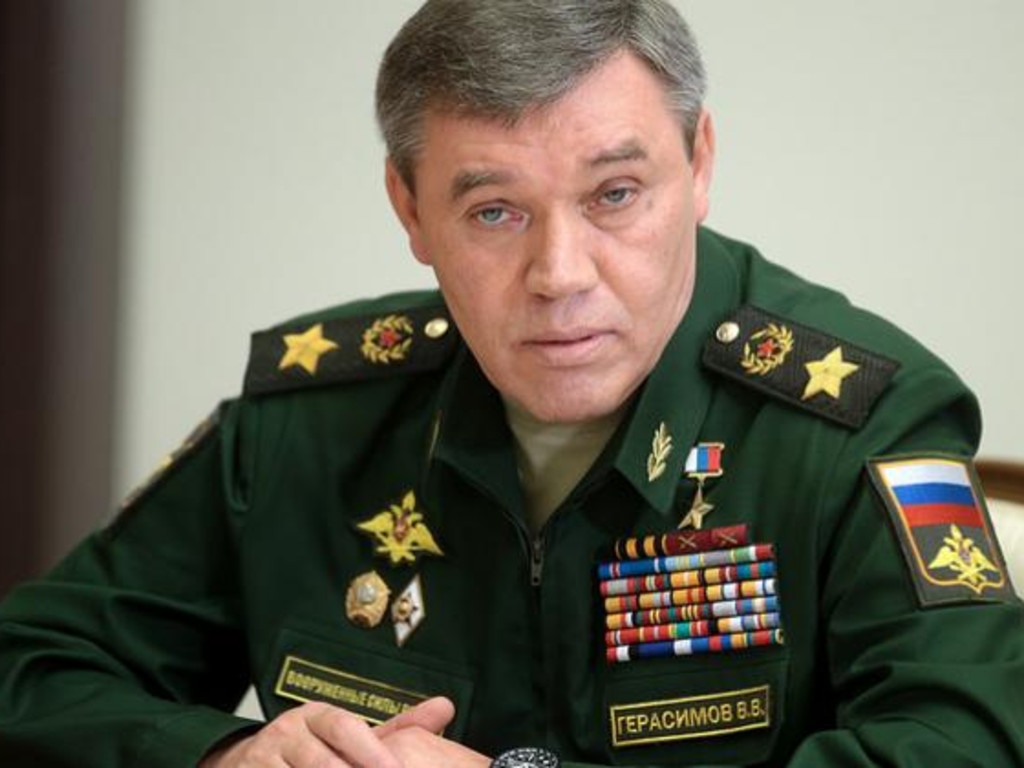
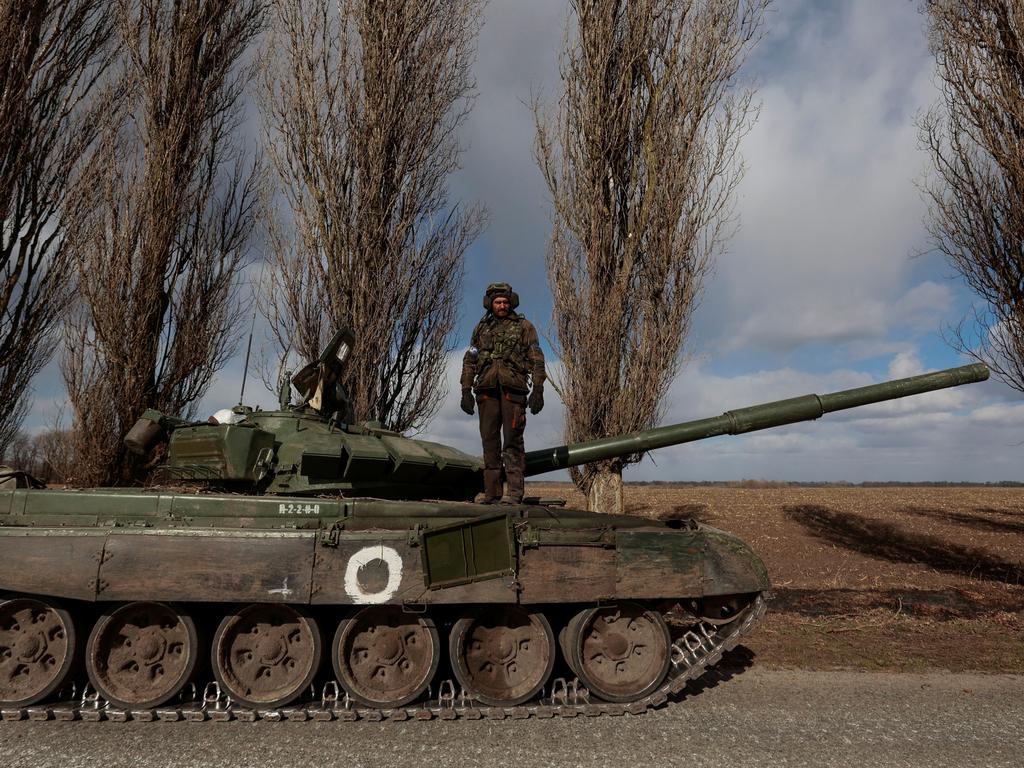
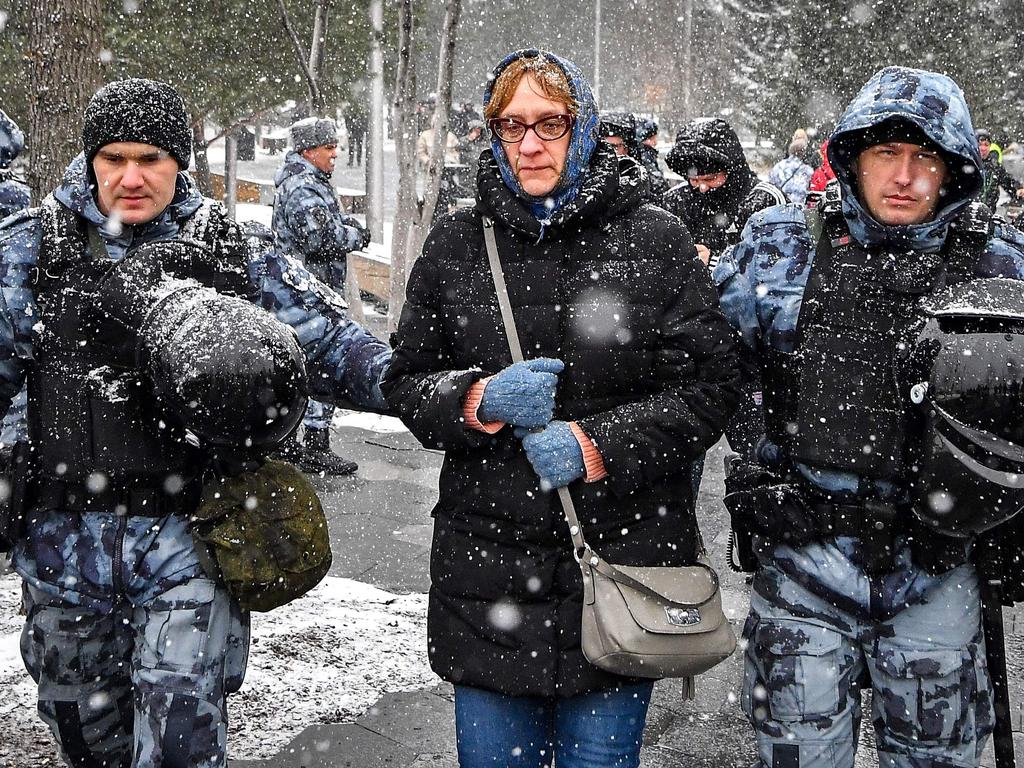


To join the conversation, please log in. Don't have an account? Register
Join the conversation, you are commenting as Logout